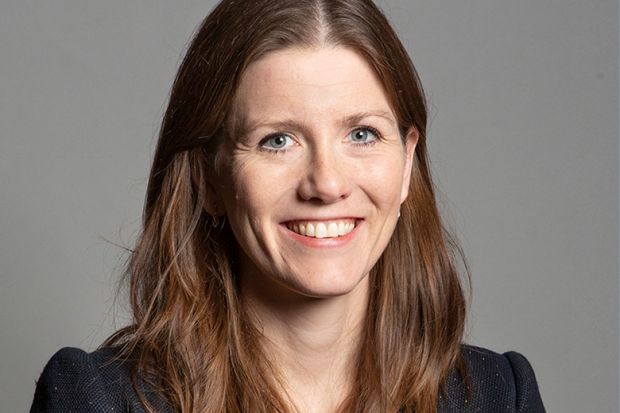English universities have been accused by a minister of “tak[ing] advantage of” students from deprived backgrounds who they enrolled on “dumb[ed] down” courses.
Michelle Donelan, the universities minister in the Westminster government, said that higher education access initiatives had “let down too many people” in the past decade-and-a-half, with “too much focus on getting students through the door, and not enough focus on how many drop out, or how many go on to graduate jobs”.
Speaking at the annual summit of the National Education Opportunities Network, which was held virtually, Ms Donelan said that too many students “have been misled by the expansion of popular sounding courses” with what she described as poor standards and “no real demand from the labour market”.
“Quite frankly, our young people have been taken advantage of – particularly those without a family history of going to university. Instead some have been left with the debt of an investment that didn’t pay off in any sense,” the minister said.
“And too many universities have felt pressured to dumb down – either when admitting students, or in the standards of their courses. We have seen this with grade inflation and it has to stop.
“We need to end the system of arbitrary targets that are not focused on the individual student’s needs and goals. And let’s be clear – we help disadvantaged students by driving up standards, not by levelling down.”
Ms Donelan said that universities should focus on helping disadvantaged students to complete their courses, and on “going the extra mile to raise standards and aspirations in schools”. This could be through sponsoring schools, “supporting a robust curriculum” or running summer camps, said the minister, who highlighted the success of mathematics-focused schools run by King’s College London and the University of Exeter.
Ms Donelan also said that social mobility “isn’t about getting more people into university”, a day after prime minister Boris Johnson indicated in the speech that supporting further education colleges would be a key focus of the government’s post-coronavirus economic plans.
“For decades we have been recruiting too many young people on to courses that do nothing to improve their life chances or help with their career goals,” she said.
“True social mobility is about getting people to choose the path that will lead to their desired destination and enabling them to complete that path. True social mobility is when we put students and their needs and career ambitions first, be that in HE, FE or apprenticeships.”
The minister concluded by stating that she was calling for “a new era on access and participation: one based on raising standards, not on dumbing down; on putting prospective students and their ambitions and their needs first; on results and impact, not on box ticking and marketing; and on delivering graduates into jobs that really will transform their lives”.
Jo Grady, general secretary of the University and College Union, said that Ms Donelan “appears to be trying to turn some students off university by saying it is expensive and substandard”, warning that an “obsession” with graduate earnings as a measure of success “suggests ignorance about the real value of education”.
“For the minister to say students have been left indebted and let down is quite remarkable when the Conservatives are responsible for increasing tuition fee debt and letting the private sector squeeze more and more money out of higher education,” Dr Grady said.
“The government continues to attempt to pick artificial ‘winners’ in the market it has created, denigrating certain courses and the institutions that offer them without any evidence for doing so.”




